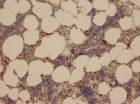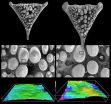(Press-News.org) Oesophageal cancer is a very serious form of cancer that, if not fatal, requires extensive surgery. A new study from Karolinska Institutet in Sweden shows that when serious complications arise after surgery for oesophageal cancer, many patients suffer other health problems, such as breathlessness, fatigue, insomnia and eating problems, for five years afterwards.
"Patients who suffer serious post-operative complications after surgery for oesophageal cancer need very close, long-term monitoring so that any problems that arise can be identified and targeted quickly," says research team member Maryam Derogar, doctoral student at the Department of Molecular Medicine and Surgery.
Oesophageal cancer is the eighth most common form of cancer in the world. The disease is often discovered at a late stage once the symptoms, such as difficulties swallowing and weight loss, have occurred. The most established curative treatment is radical surgery that often incorporates the abdomen, chest and throat. Surgery is only performed on 25 to 33 per cent of patients, a third of whom survive for at least 5 years after the operation. The research team recently showed that one in six patients who underwent surgery for oesophageal cancer had an impaired quality of life to a level well below the national average.
The aim of the current study, which is published in The Journal of Clinical Oncology, was to ascertain whether serious complications following surgery for oesophageal cancer affect the quality of life among patients who survive for at least five years after their operation.
The researchers studied the quality of life trends for 141 patients who had undergone surgery for oesophageal cancer in Sweden between 2001 and 2005 and who had survived for at least 5 years afterwards. They found that 45 (roughly one third) of these patients suffered from at least one serious postoperative complication, such as chronic respiratory insufficiency or severe infection.
The patients were asked to rate their quality of life by answering a questionnaire concerning functional (e.g. physical, social and emotional function) capacity and symptoms (e.g. pain, fatigue and eating problems) at 6 months, 3 years and 5 years after surgery. After converting their responses to scores on 0 to 100 scale (where high scores for functionality and low scores for symptoms were good), the researchers made a statistical comparison of quality of life between patients who suffered serious postoperative complications and those who did not, taking into account age (at operation), sex, other health problems, type of surgery, and type and stage of tumour.
They found that patients who suffered a serious postoperative complication had more symptoms of breathlessness, fatigue and eating problems than those who had not had such complications. The impairments were apparent six months following surgery and remained unchanged for 5 years. These patients also had problems with insomnia and heartburn.
INFORMATION:
Publication: 'Influence of major postoperative complications in long-term survivors after esophageal cancer surgery', Maryam Derogar, Nicola Orsini, Omid Sadr-Azodi & Pernilla Lagergren, Journal of Clinical Oncology, online 4th April 2012.
Journal website: http://jco.org
For further information, please contact:
Professor Pernilla Lagergren
Tel: +46 (0)8-517 759 84 or +46 (0)70-376 54 79
Email: Pernilla.Lagergren@ki.se
Maryam Derogar, doctoral student and medical student
Tel: +46 (0)8-517 709 83 or +46 (0)73-677 86 84
Email: Maryam.Derogar@ki.se
Contact the Press Office and download photos: http://ki.se/pressroom
Karolinska Institutet is one of the world's leading medical universities. It accounts for over 40 per cent of the medical academic research conducted in Sweden and offers the country's broadest range of education in medicine and health sciences. Since 1901 the Nobel Assembly at Karolinska Institutet has selected the Nobel laureates in Physiology or Medicine.
END
Despite the predicted environmental benefits of biofuels, converting land to grow bioenergy crops may harm native wildlife. Researchers at the Helmholtz Centre for Environmental Research in Leipzig have developed a way to study the effects of increased energy crop cultivation on farmland bird populations.
"The Skylark is an indicator species for agricultural areas because it occupies many habitats of the wider countryside around the globe, breeds on the ground within fields and feeds mostly on insects" notes lead researcher, Jan Engel. "Improving the habitat suitability ...
Neutrophil granulocytes comprise important defences for the immune system. When pathogenic bacteria penetrate the body, they are the first on the scene to mobilise other immune cells via signal molecules, thereby containing the risk. To this end, they release serine proteases – enzymes that cut up other proteins to activate signal molecules. Scientists at the Max Planck Institute of Neurobiology in Martinsried have now discovered a new serine protease: neutrophil serine protease 4, or NSP4. This enzyme could provide a new target for the treatment of diseases that involve ...
A new study has estimated that over 260,000 cats and dogs entered the care of UK rescue organisations during 2009, the first full year since the onset of the UK recession.
The aim of the research was to estimate the number of cats and dogs, currently being cared for by UK welfare organisations, the proportion of time that these organisations were full to capacity and the number entering these organisations during a 12-month period. The University of Bristol study by Dr Corinna Clark and colleagues in the School of Veterinary Sciences is published in the Veterinary ...
The journal Computers in Biology and Medicine has published an article on the new IT application BootstRatio, created by IDIBELL researchers. The application allows online statistical analysis of data from gene expression. It is accessible through http://regstattools.net/br and any scientist is already to use it.
Researchers at the Human Molecular Genetics group at IDIBELL, led by Dr. Virginia Nunes, had a problem to provide signification to the results of statistical analyses of gene expression data. Most of the statistical calculations which are done to compare gene ...
You are what you eat is truism that has been given new impetus by 'cutting edge' research led by the University of Leicester that reveals your teeth are literally shaped by your food.
Indeed, evidence from teeth can be used to determine what has been eaten by an animal providing a new way of working out the diets of wild animals that doesn't involve the unpleasant task of looking at the contents of their guts.
Scientists say it is also possible to use these methods to investigate diets of extinct animals such as giant marine reptiles and dinosaurs.
Research led by ...
Negative thinking is a red flag for clinical depression. Stopping such thoughts early on can save millions of people from mental illness, according research study from the Frances Payne Bolton School of Nursing at Case Western Reserve University.
Jaclene Zauszniewski, the Kate Hanna Harvey Professor in Community Health Nursing and associate dean for doctoral education at the school, has developed a brief 8-item survey to help healthcare providers identify depressive thinking patterns that may lead to serious depression if not identified and addressed early.
Zauszniewski's ...
Soon, the gardens and fields will be blooming, fragrant and buzzing again. Bees, flies and beetles fly, as they have done for millions of years, from flower to flower in search of food or mates, drawn by flower shapes, colors and the scents of the individual plants. Often, pollinating insects favor certain scents and preferentially visit the flowers in question. Previously, researchers always assumed that floral scents and the fondness of pollinating insects for a specific scent evolved mutually via coevolution of plants and insects. However, the evolutionary biologist ...
Physicists have recently devised a new method for handling the effect of the interplay between vibrations and electrons on electronic transport. Their paper is about to be published in EPJ B¹. This study, led by scientists from Zhejiang University, Hangzhou, China, and the Centre for Computational Science and Engineering at the National University of Singapore, could have implications for quantum computers due to improvements in the transport of discrete amounts of information, known as qubits, that are encoded in electrons.
The authors created an electron transport model ...
A current study shows that the risk for coronary heart disease and stroke increases by almost thirty per cent in a person whose partner has cancer. The cause is probably the negative stress to which the cancer patient's relative is exposed.
We know that the relatives of chronically ill patients, especially cancer patients, have an increased risk of mental illness and depression. Previous studies have reported that mental stress and depression affect the nervous system, blood pressure and inflammation, which in turn can increase the risk of developing coronary heart disease ...
Philadelphia, PA, April 3, 2012 – Depressed individuals with a tendency to ruminate on negative thoughts, i.e. to repeatedly think about particular negative thoughts or memories, show different patterns of brain network activation compared to healthy individuals, report scientists of a new study in Biological Psychiatry.
The risk for depression is increased in individuals with a tendency towards negative ruminations, but patterns of autobiographic memory also may be predictive of depression.
When asked to recall specific events, some individuals have a tendency to ...


